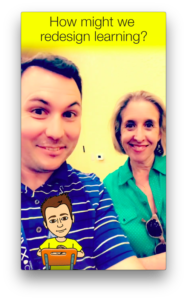Designing Learning in the Age of the Singularity
How might we design school for a world where children have “perfect knowledge?” Does having access to every fact change the role of the teacher?
How might we design school for a world where children have “perfect knowledge?” Does having access to every fact change the role of the teacher?
How might we design school for a world where children have “perfect knowledge?” Does having access to every fact change the role of the teacher?
As we begin to envision a future for schools that will undoubtedly include artificial intelligence, Augmented Reality, and Virtual Reality, we might also consider another, more curious reality – one where students could be coming to school with “perfect knowledge,” and where machines have surpassed biological humans in almost all areas, from critical thinking, decision making and even empathy. Futurist Ray Kurzweil calls this phenomenon “The Singularity.”
This conference session is a lively discussion and visioning session about what school might need to look like – from curriculum to pedagogy to space and time. We explore big questions like “What does knowing mean?” and “What is the value proposition of “school?” What will “technology” look like? Who/what will be instructing students? What will students still need to learn?
Using the habits, mindsets and skill sets of human centered designers, innovators and futurists, we explore the emerging needs and of students and teachers in this new world construct and prototype elements of a school of the future that meets those needs. Groups might prototype learning spaces, a course, an assessment tool, or a completely alternative learning experience.
Resources mentioned in the presentation:
